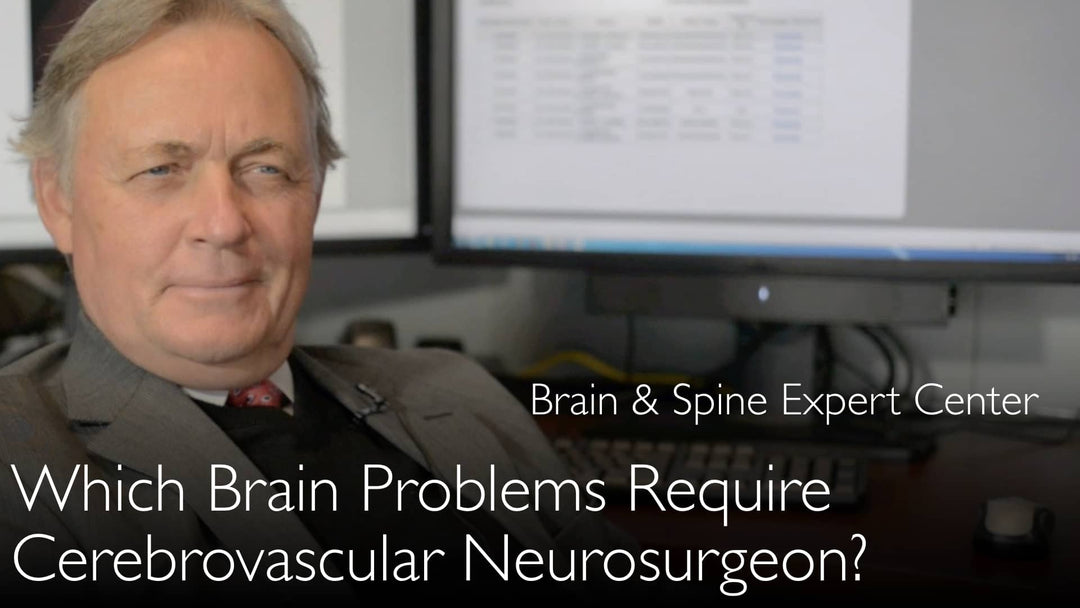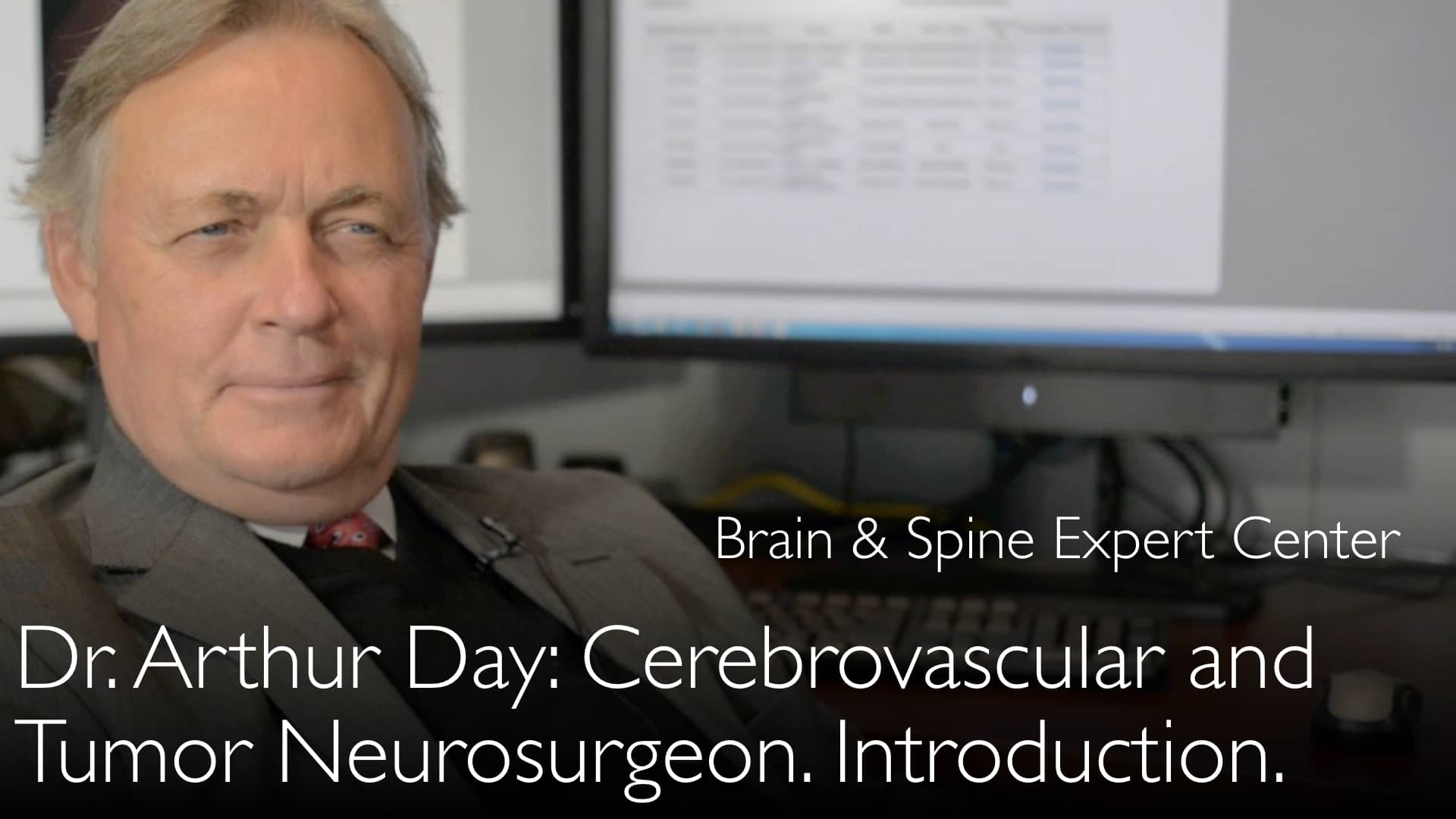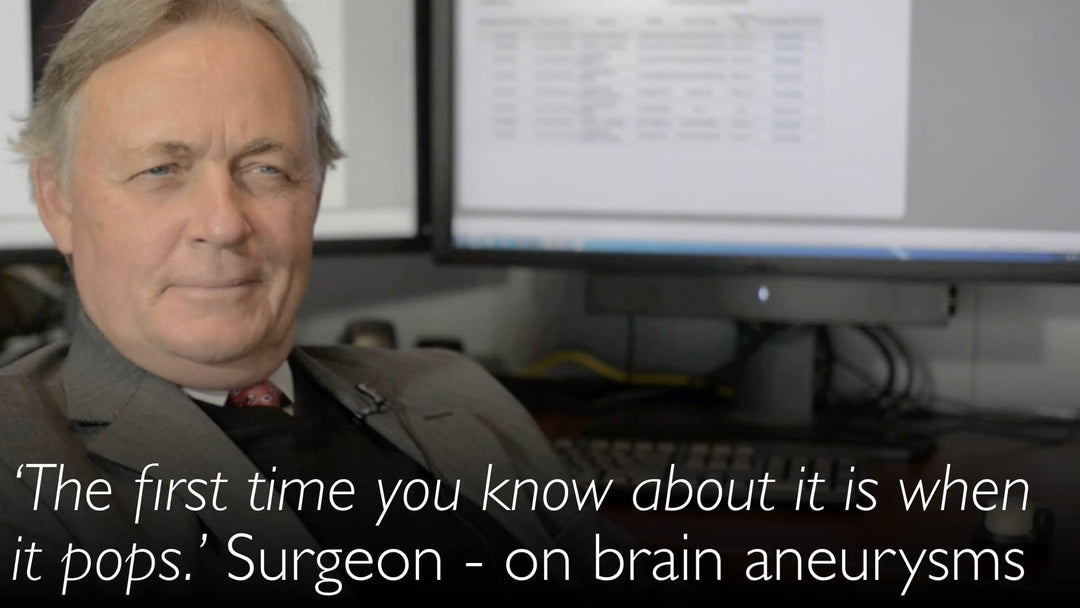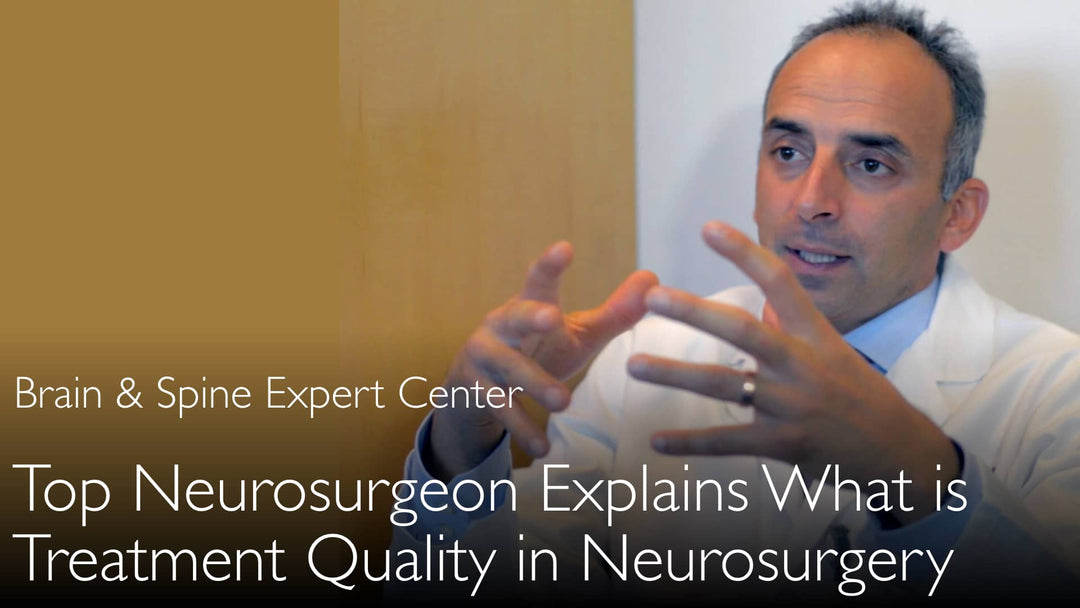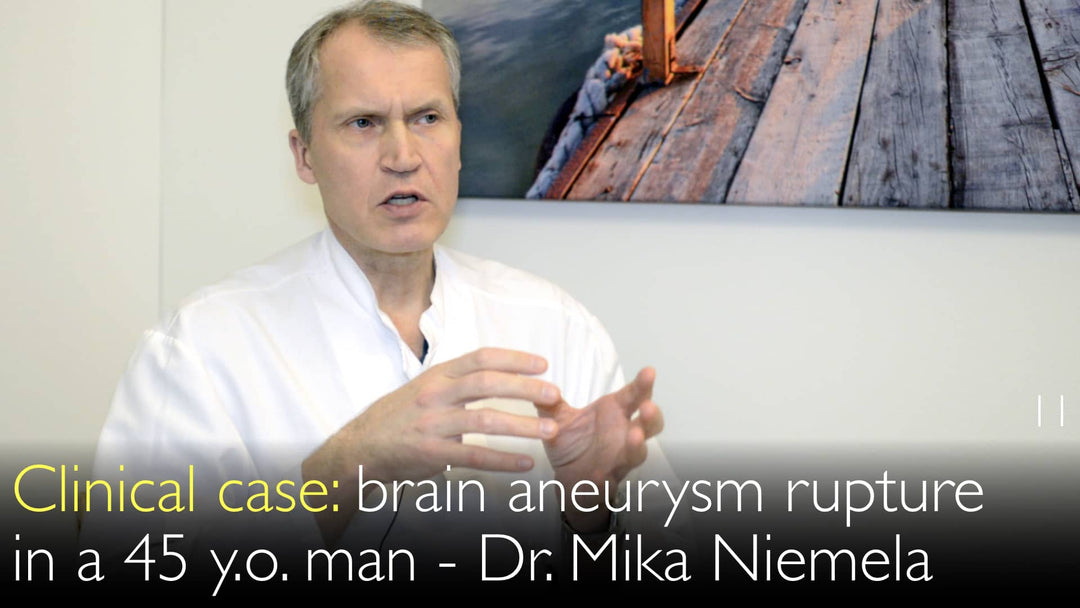뇌혈관 및 최소 침습 신경외과 분야의 선도적 전문가인 Arthur Day 박사(MD)가 뇌혈관 신경외과의 중요성을 설명합니다. 이 분야는 뇌동맥류, 동정맥 기형(AVM), 경동맥 질환 등 복잡한 뇌 및 척추 혈관 질환을 다루며, 최적의 진단과 치료 계획 수립을 위해 전문적인 제2의견을 구하는 것이 중요함을 강조합니다.
뇌혈관 신경외과: 뇌동맥류, 뇌동정맥기형, 경동맥 질환의 치료
목차 바로가기
- 뇌혈관 신경외과란 무엇인가?
- 뇌혈관 신경외과 전문의가 치료하는 질환
- 뇌동맥류와 뇌동정맥기형(AVMs)
- 경동맥 질환과 뇌졸중 예방
- 전문화와 경험의 중요성
- 의학적 제2의견의 결정적 역할
- 뇌혈관 신경외과의 발전과 미래
뇌혈관 신경외과란 무엇인가?
뇌혈관 신경외과는 뇌와 척수로의 혈액 공급에 집중하는 고도로 전문화된 의학 분야입니다. Arthur Day 박사(MD)의 정의에 따르면, 이는 뇌혈류에 영향을 미치는 모든 구조를 다룹니다. 여기에는 뇌로 들어가거나 나오는 동맥과 정맥, 그리고 뇌 내부에 존재하는 혈관의 모든 문제가 포함됩니다. 이 용어는 뇌의 가장 큰 부분을 의미하는 'cerebrum(대뇌)'와 혈관을 뜻하는 'vascular'에서 유래되었습니다.
뇌혈관 신경외과 전문의가 치료하는 질환
뇌혈관 신경외과 전문의는 뇌 혈관계의 구조와 기능에 관련된 다양한 이상을 진단하고 치료합니다. 이들은 생명을 위협할 수 있는 출혈성 뇌졸중이나 허혈성 뇌졸중으로 이어질 수 있는 질환들의 치료를 전문으로 합니다. 그들의 전문성은 정상 혈류를 회복하고 신경 손상을 예방하는 중재 시술에 필수적입니다.
Arthur Day 박사(MD)는 이 분야가 정밀한 수술 기술과 깊은 해부학적 지식을 요구하는 복잡한 병리들을 다룬다고 강조합니다.
뇌동맥류와 뇌동정맥기형(AVMs)
이 분야에서 주로 다루는 주요 질환으로는 뇌동맥류와 뇌동정맥기형(AVMs)이 있습니다. 베리 동맥류와 같은 뇌동맥류는 뇌 동맥의 약해진 부분이 부풀어 오르며 파열 위험을 내포합니다. 뇌동정맥기형(AVM)은 뇌 내에서 동맥과 정맥을 비정상적으로 연결하는 혈관 덩어리로, 정상 조직을 우회합니다.
이외에도 경막 동정맥루(DAVFs)나 중요한 혈액 공급을 동반한 뇌종양 같은 복잡한 혈관 병변을 치료합니다. 이러한 상태의 치료는 출혈 위험을 제거하기 위해 미세수술 기법, 혈관내 시술, 또는 이 둘을 결합한 방법으로 진행됩니다.
경동맥 질환과 뇌졸중 예방
뇌혈관 신경외과는 경동맥 질환을 치료함으로써 허혈성 뇌졸중 예방에도 중요한 역할을 합니다. 이 질환은 목의 경동맥에 죽상동맥경화판이 쌓여 뇌로 가는 혈류를 방해하는 경우를 말합니다. 플라크 일부가 떨어져 나와 뇌혈관을 막으면 뇌졸중이 발생할 수 있습니다.
주요 수술 방법은 동맥 내막의 플라크를 제거하는 경동맥 내막절제술입니다. 이러한 수술의 필요성을 판단하는 것은 전문의의 상담이 반드시 필요한 중요한 결정입니다.
전문화와 경험의 중요성
뇌 혈관 네트워크의 복잡성과 취약성으로 인해 이 분야는 높은 수준의 전문화를 요구합니다. Harvey Cushing 박사와 같은 선구자들이 신경외과 및 뇌혈관 수술의 기초를 닦았습니다. 오늘날에는 Arthur Day 박사(MD)와 같은 외과의사들이 최소 침습적 기법으로 이 분야를 발전시키고 있습니다.
최상의 결과를 위해서는 주요 센터에서 경험이 풍부한 뇌혈관 신경외과 전문의의 치료를 받는 것이 중요합니다. 이러한 시술은 모든 병원에서 흔히 수행되지 않기 때문입니다.
의학적 제2의견의 결정적 역할
Anton Titov 박사(MD)는 뇌혈관 질환 진단을 받은 환자들에게 의학적 제2의견을 구하는 것이 매우 유용하다고 강조합니다. 제2의견은 경동맥 질환과 같은 진단의 정확성과 완전성을 확인해 줄 수 있습니다. 또한 내막절제술과 같이 제안된 치료가 정말 필요하고 적합한지 검증할 수 있습니다.
궁극적으로, Day 박사와 같은 전문가의 제2의견은 환자가 최선의 치료를 선택하도록 도와 치료 계획에 대한 확신과 안정감을 제공합니다.
뇌혈관 신경외과의 발전과 미래
이 분야는 기술 발전과 함께 지속적으로 진화하고 있습니다. 혈관 내 카테터를 이용한 최소 침습적 접근법은 환자 치료를 혁신했습니다. 이러한 기법들은 기존 개방 수술에 비해 회복 기간이 짧고 위험이 적은 경우가 많습니다.
기술과 기법이 개선됨에 따라, 뇌혈관 신경외과 전문의들은 더 높은 정밀도와 안전성으로 복잡한 상태들을 치료할 수 있게 되어 환자의 생존율과 삶의 질을 높이고 있습니다.
전체 대본
Anton Titov 박사(MD): 뇌혈관 신경외과란 무엇입니까? 뇌혈관 신경외과 전문의는 어떤 문제들을 치료합니까?
저명한 신경외과 전문의는 이러한 의학적 문제들은 경험이 풍부한 뇌혈관 신경외과 전문의에게 의뢰되어야 한다고 설명합니다. 어떤 문제들이 뇌혈관 신경외과 전문의의 주의를 필요로 합니까?
Arthur Day 박사(MD): 뇌혈관 신경외과는 뇌동맥류, 뇌동정맥기형, 종양, 그리고 경막 동정맥루를 포함합니다.
저명한 뇌혈관 신경외과 및 스포츠 의학 신경학 전문의 소개. 뇌동정맥기형(AVM), 경막 동정맥루(BDAVF), 베리 동맥류는 뇌혈관 신경외과 전문의가 치료하는 병변들의 예입니다.
Harvey Cushing 박사는 미국에서 신경외과 및 뇌혈관 수술 분야의 창시자입니다. 뇌혈관 신경외과 및 최소 침습 신경외과 분야의 최고 전문가와의 비디오 인터뷰.
Anton Titov 박사(MD): 의학적 제2의견은 경동맥 질환 진단이 정확하고 완전한지를 확인합니다. 의학적 제2의견은 또한 경동맥 질환에 대한 내막절제술이 필요한지 확인합니다.
의학적 제2의견은 경동맥 죽상동맥경화증에 대한 최선의 치료법 선택을 돕습니다. 경동맥 질환에 대한 의학적 제2의견을 얻고, 여러분의 치료가 최선이라는 확신을 가지세요.
Arthur Day 박사(MD): 기본적인 정의부터 시작해 보겠습니다.
Anton Titov 박사(MD): 어떤 문제들이 뇌혈관 신경외과에 속합니까?
Arthur Day 박사(MD): 뇌혈관 신경외과는 뇌로의 혈액 공급에 영향을 미치는 모든 구조를 다룹니다. 뇌로 들어가는 동맥과 정맥의 모든 문제. 뇌에서 나오거나 뇌 내에 존재하는 모든 동맥과 정맥은 뇌혈관 신경외과의 영역에 속합니다.
"Cerebrum"이라는 단어는 머리에 위치한 뇌의 가장 큰 부분을 의미합니다. "Vascular"는 머리로 들어가거나 머리에서 나오는 혈관들을 의미합니다.
뇌동맥류와 뇌동정맥기형은 뇌혈관 신경외과 전문의들이 치료하는 흔한 문제들입니다. 뇌혈관 신경외과 전문의들이 치료하는 문제들에는 뇌로 들어가고 나오는 동맥과 정맥의 이상이 포함됩니다.
뇌혈관 신경외과 전문의들은 또한 혈관의 형태와 기능에 있는 문제들을 치료합니다. 신경외과 전문가들은 뇌의 혈관에 영향을 미치는 질병들을 진단하고 치료합니다.
뇌혈관 신경외과 분야는 뇌동맥류, 뇌동정맥기형, 종양, 경막 동정맥루, 최소 침습적 척추 수술, 그리고 스포츠 손상을 포함합니다.


